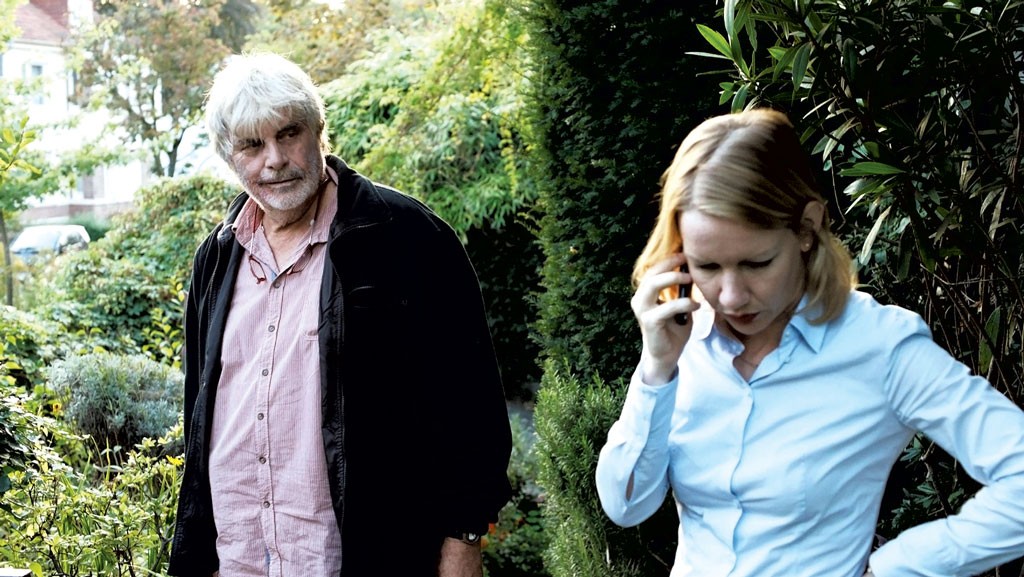Not often, but certainly as I write this, I wish we weren't limited in the number of stars we can give a movie. If I could grant Maren Ade's third feature the rating it deserves, its title would be followed not by five stars but by a constellation. The Academy blew it. Toni Erdmann is by far the finest foreign language film of the past year.
The 40-year-old writer-director (Everyone Else) has quietly established a reputation as a maker of comedy-dramas with a flair for laser-sharp social commentary. With her latest, Ade has set her sights higher than ever before, and the result is both a supremely human work of art and an international breakout smash. It's easily the most entertaining and affecting three hours of German cinema you're likely to see.
Though you'd be unlikely to guess that from its opening moments. This is a picture whose greatness sneaks up on you. In the first scene, the camera is fixed on the front door of a nondescript residence. A deliveryman rings the bell and is greeted by a rumpled, unshaven bear of a boomer, who informs him that the package he's carrying is actually for the latter's brother. Who just got out of jail. And has probably ordered pornography. Possibly a bomb.
The occupant disappears, ostensibly to fetch the pervert, only to reappear a moment later sporting a fright wig, joke-shop teeth and a handcuff. After savoring the look on the poor deliveryman's face for a beat or three, the gray-haired goofball chuckles, admits he's the same guy who answered the door and slips the grateful driver a fistful of Euros for his trouble. We may not suspect we've just met one of the great screen creations of the millennium.
His name is Winfried Conradi, and he's played by Peter Simonischek in one of the most magnificently multilayered performances I've ever had the pleasure of watching. To make a long story short, Winfried is a part-time music teacher and full-time merry prankster whose daughter, Ines (Sandra Hüller), is a tightly wound corporate climber with zero patience for him.
A series of spectacularly uncomfortable situations ensues when Winfried shows up unannounced in Bucharest, where Ines is consumed by an assignment that will make or break her career. Her father assumes the alter ego of "Toni Erdmann" — life coach and German ambassador to Romania — and inserts himself without the slightest invitation into her daily existence.
You won't believe where the film goes from there. Everywhere except where you expect. In addition to featuring movie history's most outrageous wardrobe malfunction, Toni Erdmann works astoundingly well on a ludicrous number of levels. It's a fish-out-of-water story, a contemplation of international capitalism, a study of workplace sexism, a satire of deal making that couldn't be more timely, a riotous sex farce, a meditation on generational rebellion and a comedy in which characters discuss "the meaning of life" casually over lunch. But, first and foremost, it's an achingly beautiful ode to father-daughter bonding.
The filmmaker doesn't waste a minute of that nearly three-hour running time. So, can you imagine the number of delightfully daffy, deeply meaningful scenarios she's able to envision and bring to unforgettably funny, poignant life? Believe me, you can't even begin. Having met and now spent a considerable amount of time with the title character, I envy you. You have a singular treat in store. What I wouldn't give to get to meet Toni Erdmann all over again.


















































